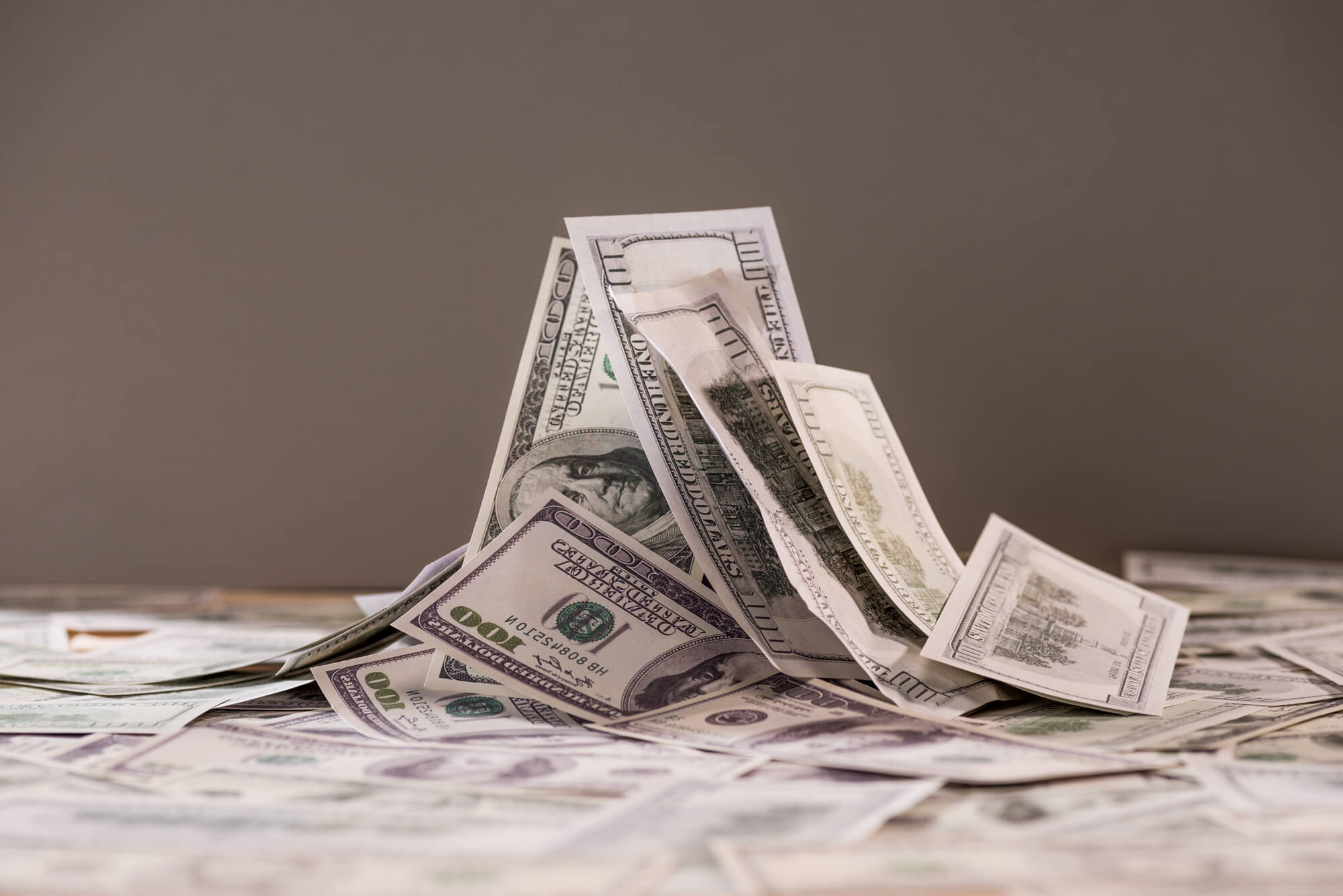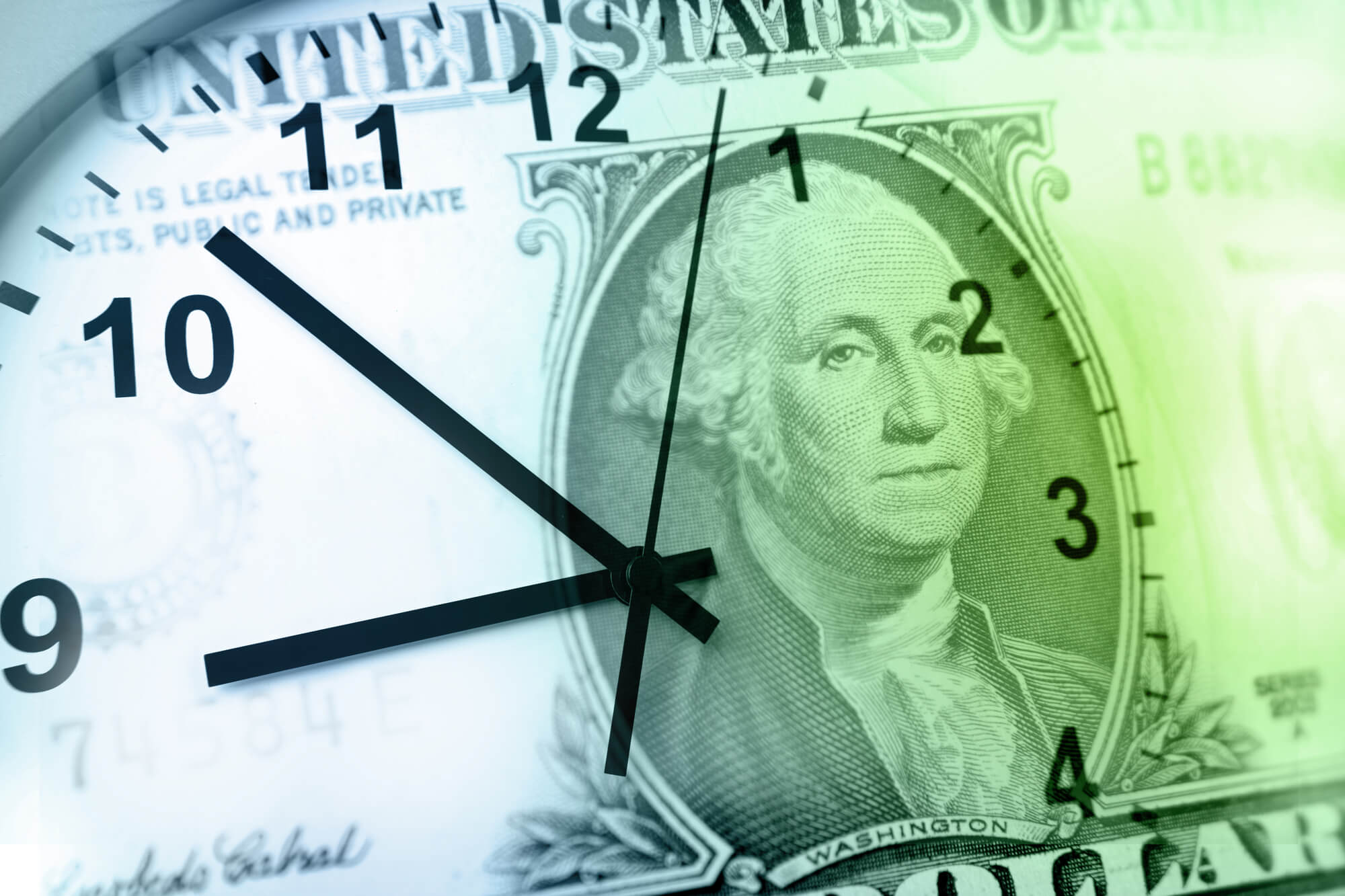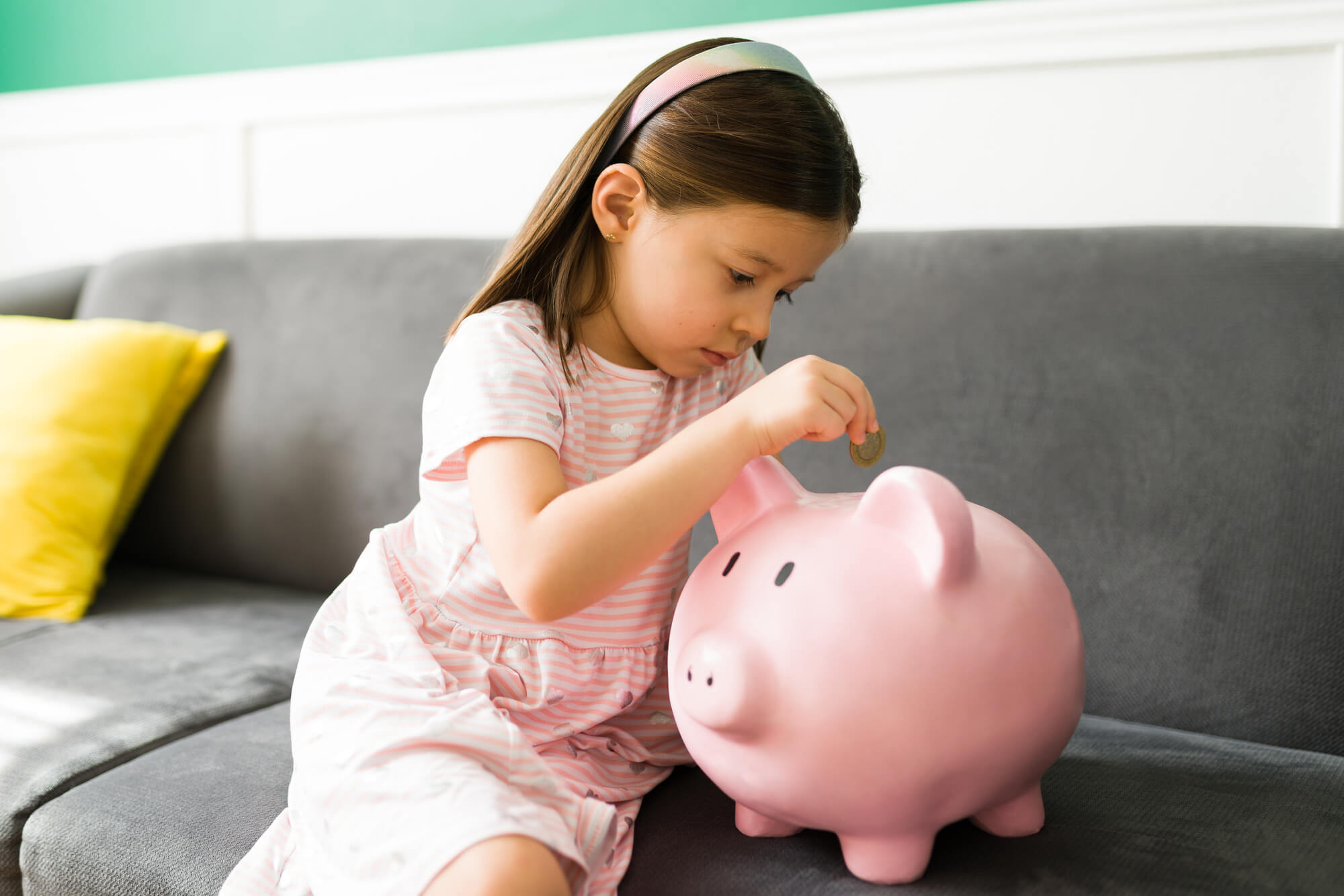Being in debt is not necessarily correlated to how much money you make. Low-income and high-income households can both experience the burden of debt. In addition to other debt repayment methods, “free money” is available to pay off debt or other living expenses.
In general, government programs or nonprofit organizations provide “free money” to pay off debt. This money is typically contingent on program application and eligibility and can be used to pay basic costs such as utility, child care, education, healthcare, or housing (but not consumer debt).
Most “free money” given to assist with debt repayment comes in the form of a personal grant through the government or private institution. “Free money” isn’t quite the same as being handed a check, so it’s valuable to understand the nuances of using government or private grants.
Paying Off Debt Through Government or Private Grants
There are two main ways to obtain “free money” that can be used to pay off debt or to cover basic expenditures: the first is through government grants (which can also be thought of as government assistance programs, and officially referred to as federal benefit programs designed to help individuals and families in need become self-sufficient) and the second is through private organizations (such as churches or nonprofits). You can search a few different places in order to find information about government or private assistance available to you.
Where to Find “Free Money” to Pay off Debt
Government grants can be found by researching online, reaching out to local nonprofits or community programs, and asking friends and family if they have used or know of available programs. Begin by searching for the specific debt or cost you are trying to cover alongside “government assistance program” or “government grant”.
When searching for government grants to pay off debt, it’s important to be aware that there is not a legitimate government-sponsored program to assist with consumer (such as credit card) debt. Additionally, the government will rarely (if ever) directly contact you unsolicited about programs you might be eligible for. If you receive a phone call from someone asking if you are interested in a certain program, and you did not directly request information or give your information for a callback to someone, be aware that this could be a scam.
If you are interested instead in private grants to pay off debt, consider going through a community action agency. Community action agencies focus on providing resources to individuals and families progressing to self-sufficiency and financial stability. You can also research on your own online. Note that it will probably be more difficult to find a private grant that meets your needs (and you meet theirs!) than a government program.
Even though government or private grant money is free in the sense that it doesn’t usually need to be paid back, nor do you need to work for it, there are stipulations in place. Additionally, some grants are considered income and are therefore taxed as such. Each assistance program or grant will have its own unique eligibility criteria you must meet to secure payment.
Requirements for Obtaining Grants to Pay off Debt
Many government assistance programs that can be used to pay off debt or pay bills rely on a standardized income level to determine eligibility. The U.S. Department of Health and Human Services issues poverty guidelines each year which are used to calculate whether or not someone can receive certain aid. Here is a breakdown of the 2021 poverty guidelines for the 48 contiguous states, the District of Columbia, Puerto Rico, the U.S. Virgin Islands, Guam, and the Commonwealth of the Northern Mariana Islands.
| Persons in family/household | Poverty guideline |
|---|---|
| 1 | $12,880 |
| 2 | $17,420 |
| 3 | $21,960 |
| 4 | $26,500 |
| 5 | $31,040 |
| 6 | $35,580 |
| 7 | $40,120 |
| 8 | $44,660 |
| For families/households with more than 8 persons, add $4,540 for each additional person. |
As stated by the HHS, “Programs using the guidelines (or percentage multiples of the guidelines — for instance, 125 percent or 185 percent of the guidelines) in determining eligibility include Head Start, the Supplemental [Nutrition] Assistance Program (SNAP), the National School Lunch Program, the Low-Income Home Energy Assistance Program, and the Children’s Health Insurance Program. Note that in general, cash public assistance programs (Temporary Assistance for Needy Families and Supplemental Security Income) do NOT use the poverty guidelines in determining eligibility. The Earned Income Tax Credit program also does NOT use the poverty guidelines to determine eligibility. For a more detailed list of programs that do and don’t use the guidelines, see the Frequently Asked Questions(FAQs).”
Private assistance programs that exist to help individuals pay off debt have their own unique set of criteria. If you’re looking to pay of student debt, certain private grants might determine your eligibility based on your major or require you to work for a specific organization after graduation for a set period of time. If you find a private grant you’re interested in, make sure to locate eligibility requirements either on their website or by calling and verifying.
Grants used to pay off debt can also have stipulations for how the money is used. You might only be able to use the money to pay off utility bills or to cover the cost of childcare.
After establishing your eligibility by making sure you meet the requirements for the desired grant (as outlined above), take the time to learn the process for actually receiving the grant. Each grant will have a different application process, but most seem to have an online portal through which you can apply or ask you to reach out the local office that represents the grant.
Beware of “Free Money” Scams
Even though there are many legal, authorized grants available to provide assistance with paying off debt, there are also numerous scams. Fake grants or organizations that offer to give you money might instead be looking to maliciously use your personal information, such as birthdate or social security number. Here are a few warning signs to look out for when evaluating different options to pay off debt.
- Claiming new government programs exist to pay off credit card or consumer debt, or that they work with a special government program that can give you “free money”.
- Automatically enrolling you in a debt relief program without reviewing your financial situation or consulting you.
- Guaranteeing to make your debt disappear.
- Advising you to start ignoring your creditors.
- Asking for upfront payments before providing any debt relief services.
- Asking you to send money to get money back that you’ve already paid.
If you come across a fraudulent organization, report them to the FDC here.
Though the idea of “free money” to pay off debt is enticing, there are other ways to pay off debt that don’t involve the process of researching, applying for, and using grant money.
How to Pay off Debt with No Money: 11 Strategies
There are a series of ways to pay off debt without any money.
1. Capture any unclaimed money to your name.
When an organization or business owes you money and either you don’t collect it or they can’t locate you, the money is considered unclaimed. If you’re trying to pay off debt without money, take the time to identify whether or not you have any unclaimed money. Unclaimed money can come in many forms such as cash, security deposits, checks, or money orders. You can search for unclaimed property at your state’s unclaimed property office or online.
Additionally, consider looking for money owed you from past employers, insurance companies, banks, or undelivered tax refund checks.
2. Ask your family and friends for low-interest or no-interest loans.
You don’t need to take out a loan from a bank or lender to pay off debt. Instead, consider asking friends and family if they’ll offer you a low-interest or no-interest loan. When you work with close associate instead of an institution to borrow money, you can more easily set the loan repayment schedule and method of making payments.
3. Budget your way to saving money.
If you’re not currently budgeting, but find yourself out of money with debt to pay, start budgeting now! Identify what you’re spending on and where you can be saving money. You might find that by simply keeping track of where you’re spending, you’re able to save cash each month, which you can use to pay off your debts. If you’re new to budgeting, check out this guide to different budgeting methods or how to budget a small income.
4. Sell unwanted items.
Perhaps you’ve moved to a new climate and no longer need a large overcoat, or the art hanging on the wall doesn’t suit you anymore. Consider selling unwanted items to create some additional income that can be used to pay off debt if you don’t have any money to spare. You can sell items at a traditional yard sale or online through marketplaces such as Facebook or Craigslist.
5. Refinance large loans, such as car or home loans.
If you’re a homeowner that finds themselves out of money and in debt, explore refinancing your mortgage. Refinancing is the process of replacing an existing loan with a new one and using the new to pay off the original loan. By doing this, you can sometimes secure better interest rates or smaller loan payment amounts. You can also look at refinancing a car or other large purchase, in addition to your home.
6. Start side hustling to supplement your income.
The easiest way to pay off debt with no money is to get more money. Making more money is the key to not only paying off debt but to becoming completely financially independent!
In today’s digital economy, there are a plethora of ways to make money outside of your regular job. Think about delivering DoorDash or driving Uber, walking dogs, freelance writing, or selling art or other goods, and commit to using that extra money to only pay off debt.
7. Consider pausing investments.
This is controversial, and should only be considered if you’ve exhausted all other options (because investments rely on the power of compound interest, so withdrawing early means you’re losing out on future gains). If you’re out of money and completely desperate to pay off debt without going bankrupt, think about withdrawing from your investments accounts to pay off your debts. If this option does appeal to you, be aware that early withdrawals from certain investments, such as 401(k) retirement accounts, come with a penalty. Be sure to weigh all consequences before proceeding down this road and consult a financial professional for customized advice.
8. Ask for a raise at work.
If you don’t like the idea of starting a side hustle after hours, but you’re out of extra money and need to pay off debts, muster up the courage to ask for a raise at work! If you decide to ask your boss for a raise, be sure it’s because you’re actually ready for one and not simply because your spending has gotten out of hand. Your employer is not accountable for how you save and spend your money, and you agreed to take certain compensation when you began your position. If you’re ready to ask, read through these tips from other workers on asking for a raise or these steps to increase your hourly rate.
9. Give up unnecessary expenses.
After taking the time to budget, you might have found you’re forking out cash for expenses you don’t really need, such as cable TV, an app subscription, or eating out. Start eliminating those items from your life and use that money to pay off debt. You won’t even miss your Netflix when you’re free from debt! For more tips on spending money wisely, check out this article.
10. Downsize your car or home.
If one of the reasons you can’t pay off your debt is because you’ve bitten off more than you can chew, consider downsizing. Find an apartment for cheaper a little outside of town, sell your home and buy something smaller, and think about swapping your car for a more economical one. You can still have everything you need — such as a car or home — without the burden of debt.
11. Take advantage of government or private grants.
As stated in the beginning of this article, there are government and private grants available to pay off debt and cover basic living expenses. If you find yourself out of money and in need of help paying off debts, start researching what assistance programs might work for your specific circumstances.
Conclusion
There are many ways to pay off debt with no money, one of which is using “free money” given through government or private grants. By researching your eligibility, you can apply for these grants either online, over the phone, or in person (depending on the program) to jumpstart your journey to become debt-free and eventually financially independent.
Climb on, FinBase.
Bethany









